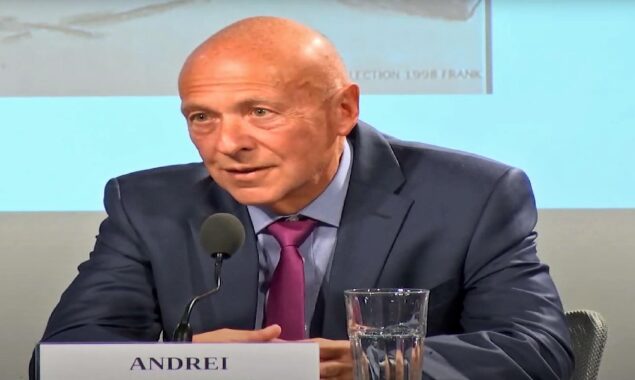Synopsis
Russian President Vladimir Putin would just consider atomic weapons on the occasion he feels an "existential danger" to his nation or system, as per international strategy specialists.

Russian President Vladimir Putin would just consider atomic weapons on the occasion he feels an “existential danger” to his nation or system, as per international strategy specialists.
Russia unlikely to use nuclear weapons unless threatened to the core; Former Russian foreign minister
Russian President Vladimir Putin would just consider atomic weapons on the occasion he feels an “existential danger” to his nation or system, as per international strategy specialists.
“They could be utilized, yet in extremely, explicit circumstances,” previous Russian unfamiliar clergyman Andrei Kozyrev told. “Assuming Russia or one of those nations truly compromised in their souls – existentially, that is … in the event that NATO troops come to Moscow, most likely they will depend on atomic weapons.”
“Yet, there is no existential danger to Russia under the current conditions,” Kozyrev said.
Russia has headed in a different direction throughout recent weeks in the wake of neglecting to take Kyiv notwithstanding a drawn-out crusade in northern Ukraine. The Russian military professed to have accomplished its stage one objective and would rather zero in on getting the Donbas district – a move that some have marked an “incidental award” to compensate for the “penance.”
Legacy Foundation Senior Fellow Brent Sadler recommended that Putin could utilize a strategic atomic strike assuming Russia confronted an “staggering military loss” in Donbas.
“That may be the situation where a strategic atomic weapon may be considered to exhibit resolve and essentially invert any patterns happening in the Russian military,” Sadler said. “I don’t see them utilizing city executioners, since that would introduce World War III, and the supposition that is assuming he does that he’s going after NATO.”
Putin repeated his atomic dangers following Finland and Sweden’s sign that both may hope to apply for NATO participation in June when the ongoing part countries meet in Madrid, and Ukrainian President Volodymyr Zelenskyy on Sunday said that “all nations ought to be worried” about Putin and his atomic weapons dangers.
However, Kozyrev, creator of “The Firebird: The Elusive Fate of Russian Democracy,” said that it is “totally” an instance of “yapping” with “no real way to chomp” from the Russian chief.
“The dependable military commandants will do all that to keep away from such a situation and to forestall the utilization of atomic weapons except if they accept there is an existential danger to their country,” he pushed.
Putin has on occasion regarded NATO’s very presence as an existential danger to Russia, however Kozyrev demanded that as long as Putin can keep up with his system, he will do nothing to undermine his, influential place.
Some portion of the trouble in attempting to foresee Putin’s potential moves is that the West keeps on projecting its own reasoning and rationale onto Moscow, which Sadler said is a “genuine terrible propensity” among western pioneers.
“For Putin, I think there is a propensity to identical representation by the United States,” Sadler made sense of. “We’re getting better by commitment, and the Ukrainian public are assisting us with seeing better, yet there’s a genuine risk there.
“What’s more, it’s hard now since Putin has detached himself, to a great extent, and he’s just captivating with an extremely confided in gathering of counsels,” he added, saying Putin could make unexpected estimations according to the western point of view.
Frederick Kagan, Director of the Critical Threats Project at the American Enterprise Institute, went above and beyond to say that Putin works in a “limited reasonableness,” which he likened to discussing “in-universe” clarifications for films or TV shows.
“There’s most certainly an imaginary universe where Putin is working, and he has in-universe clarifications for what he’s doing,” Kagan said. “Furthermore, that is an issue since it’s plainly not the case he accepts all that the Kremlin says, which is why is this interesting.”
Kagan said the U.S. worked under this equivalent structure during the Cold War and that authorities around then were more mindful that the Russians worked on an unexpected coherent track in comparison to the West did.
“We know it’s not this present reality – that is clear: he’s not going with choices that are judicious in reality, however we additionally know it’s not the universe of fiction the Kremlin turns,” Kagan added. “It’s nearer to this present reality than that, however the way in which near this present reality is difficult to say.”
Read More News On
Catch all the International News, Breaking News Event and Latest News Updates on The BOL News
Download The BOL News App to get the Daily News Update & Follow us on Google News.




